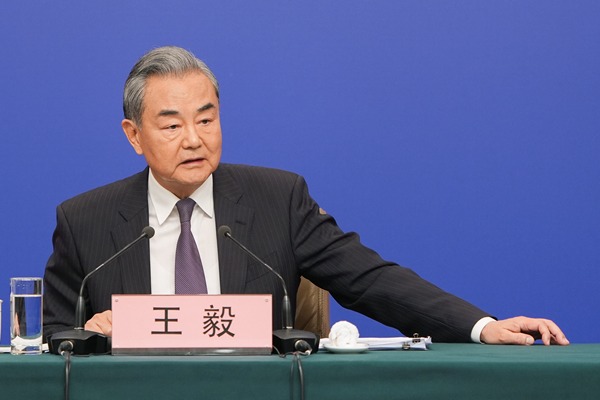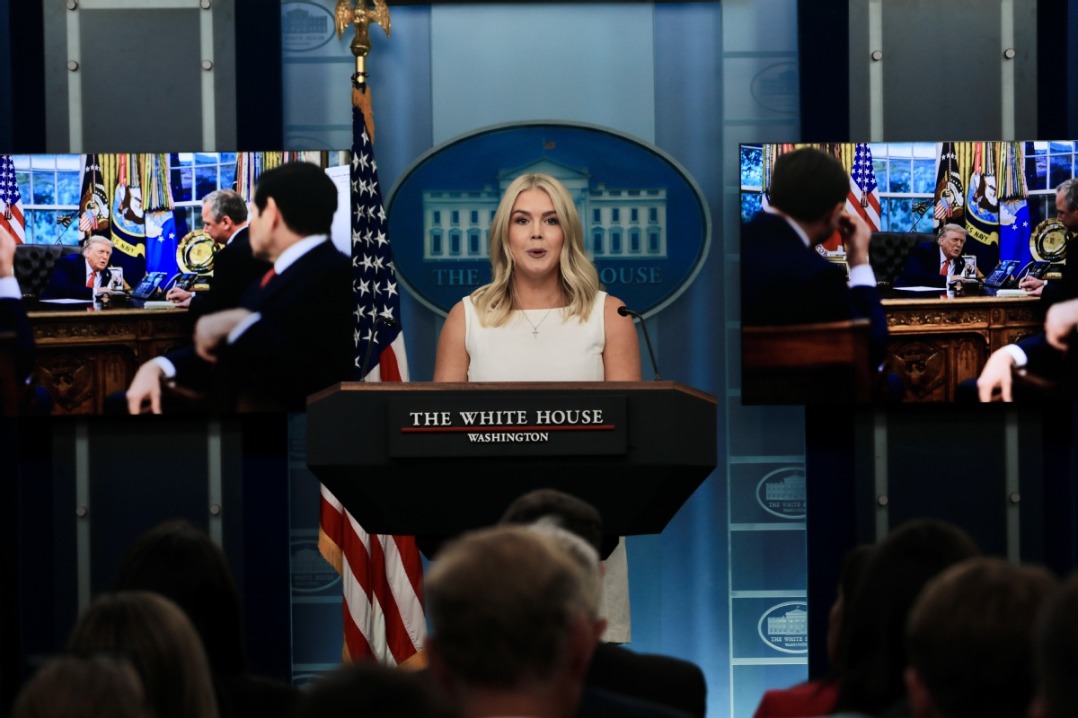Views on China among people in US softening
Perceptions shift in surveys, with more favoring cooperation over competition


In 2018, Andrea, who lives in the United States, was planning to take a trip to China to celebrate her college graduation.
When the summer of 2019 came, she changed her mind: The trade war had dimmed China's glow in her eyes, so she took a trip to Japan instead.
However, her curiosity about China was piqued again when she noticed more and more China travel vlogs on YouTube after travel recovered following the COVID-19 pandemic.
Now a young professional in her mid-20s, Andrea, who asked that her surname not be used, visited China for two weeks with her boyfriend during spring this year.
While she enjoyed the beautiful landscape of Guilin in the Guangxi Zhuang autonomous region, the rich history of the Palace Museum in Beijing and delicious and affordable cuisine, and was impressed by China's modernity and the high-speed train system, she was struck most by how safe she felt and how friendly the Chinese people were toward her and her boyfriend.
"Some watched us with curiosity, some talked with us. Whenever we needed a bit of help, we got it in abundance. We felt welcome," said Andrea. "It felt different from what we have been hearing about China in the States. I can no longer look at China through the lens of our media and politicians."
Andrea's raving about her trip to China prompted a friend of hers to plan a similar trip, she said.
Her changing views of China are reflected by recent polls.
The geopolitical tension between China and the US has led many US people in recent years to view China more negatively than they did before the trade war initiated by US President Donald Trump during his first term, which began in 2017.
Trade disputes and political rhetoric have driven the adversarial perspective higher. A Pew Research poll published in April 2024 found that 48 percent of US respondents viewed China as an "enemy", while only 6 percent viewed China as a "partner".
However, people in the US have softened their views on China in 2025. The same Pew poll conducted this year found that 33 percent of US respondents viewed China as an adversary — a drop of 15 percentage points. About 9 percent viewed China as a partner, while the majority — 56 percent — saw China as a competitor.
The shift in Pew's latest poll in April was reaffirmed by a poll conducted by Third Way, a think tank based in Washington, DC.
Two years ago, a Third Way poll found that 60 percent of people surveyed in the US favored "standing up to China", while 32 percent preferred "cooperating and finding areas of agreement with China".
In its latest poll, published in August, Third Way found that slightly more than half of those surveyed — 52 percent — preferred "cooperating and finding areas of agreement with China", while 43 percent preferred "standing up to China". That's roughly a 20-percentage-point reversal in both directions. The poll also found that, by a 40-point margin, the US survey respondents would like their country to make trade agreements with China rather than imposing tariffs and broad trade restrictions, so long as those agreements prioritize benefits for US citizens and protect US intellectual property.
This attitude shift is "subtle but meaningful", said Greg Pence, a freelancer with a degree in international studies who writes extensively on international affairs for various platforms.
'Different side'
Writing for Modern Diplomacy, a platform for assessing and evaluating international issues, Pence commented that this shift means that "ordinary Americans are discovering a different side of China through social media and cultural exchanges".
After the US Senate passed a bill last year that would ban TikTok on Jan 19, 2025, unless its Chinese parent company divested the app, many young people in the US fled to China's popular social media platform Xiaohongshu, or RedNote. People in China and the US then talked about wide-ranging topics, from their cats to food and language learning.
Pence suggested that such exchanges and personal travel, which picked up after the pandemic, might be contributing to the shift in attitudes among people in the US.
While different data sources provide varying numbers, the consensus appears to be that with the implementation of the visa-free stay policy in 2024, China saw a strong uptick of inbound international visitors, including travelers from the US — nearly doubling the figures for 2023.
"These interactions suggest that, unlike their politicians, American citizens are increasingly open to seeing China as a potential partner rather than an adversary," Pence wrote.
mayzhou@chinadailyusa.com

































